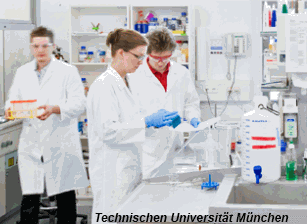|
News & Views item - July 2012 |
![]() German Universities' Excellence Initiative Seven Years On. (July 27, 2012)
German Universities' Excellence Initiative Seven Years On. (July 27, 2012)
 Begun
in 2006 the €4.6-billion
German Universities Excellence Initiative is the aim of the
German Federal Ministry of Education and Research and the German Research
Foundation to raise the stature of the Germany's research universities on the
world stage.
Begun
in 2006 the €4.6-billion
German Universities Excellence Initiative is the aim of the
German Federal Ministry of Education and Research and the German Research
Foundation to raise the stature of the Germany's research universities on the
world stage.
The approach is to significantly raise the attractiveness of selected German institutions so as to attract top international research talent in order to be able to match it with the US and British powerhouses.
According to the DFG (German Research Foundation) up to now 17,000 jobs in science have been created at all levels through the approach, with particular emphasis on the creation of a postdoctoral "society" where virtually none had previously existed. However, currently the Excellence Initiative is to terminate in 2017, and there is considerable angst in the current economic environment as to the perpetuation of the structure that has been created.
Nature's Quirin Schiermeier says simply: "To ensure that its impact lasts and that job gains are permanent, the government and universities will have to find ways to keep making big investments. Overall, despite initial scepticism, and the tendency to foster red tape, the approach is considered to be successful because "competition as a whole has rejuvenated German science by, among other things, stimulating new research proposals and encouraging scientists to increase collaboration across departments and disciplines."
The DFG told Mr Schiermeier that the initiative has attracted talent to Germany: between 2005 and 2009, the number of foreign scientists at German universities and research institutes increased by one-third, and many German-born scientists working abroad have returned.
In president of the Humboldt University Jan-Hendrik Olbertz's view the: "exercise in institutional governance" has forced Germany's entire academic elite to think hard about which parts of its science and higher-education system work well, and which do not, while Wolfgang Herrmann, president of the Technical University of Munich notes: "We're of similar size but we have five times fewer postdocs than the University of Cambridge in Britain. If we want to offer young scientists better career prospects, and we certainly do, this must urgently change.
Nevertheless, the matter of sustainability is looming. The Germans are well aware of the current debate in the United States of what employment will be available for the new army of postdocs/young scientists when the current funding runs out.
One proposal is for Germany to follow the Swiss model of undertaking federal institutes of technology comparable to Federal Institutes of Technology, Zürich (ETH) and Lausanne (EPFL), but if that is a viable option they'd better get cracking, hope that federal funding will materialise and that the German private sector will be willing to come to the party to help absorb the surplus.